Boating Accident Lawyer in Shreveport / Bossier City - Louisiana
Shreveport Boat Accident Lawyer
A day on the water is a common pastime when you live in the sportsman’s paradise. Louisiana is home to many beautiful bodies of water, from Cross Lake in Shreveport to the gulf in New Orleans. Residents frequently spend time on the water doing activities such as fishing, swimming, water-skiing, wakeboarding, or simply going for a casual boat ride. However, with these popular leisure activities comes the risk of boating accidents, and thus, serious personal injury. If you’ve been involved in a boating accident due to the negligence of another, seek the help of a Shreveport personal injury attorney who can help you recover compensation for your injuries as soon as possible.
What Causes a Boat Accident?
The United States Coast Guard (USCG) reported 4,158 accidents in 2015. 626 deaths resulted from these accidents. There was also $42 million in property damages reported that same year due to recreational boating accidents. But what exactly causes these accidents?
Boating accidents can occur in many ways, including:
- Two boats colliding
- A boat hitting a wave
- A boat hitting another boat’s wake
- A boat hitting a submerged object such as a log or rock
- A boat colliding with land or a dock
More specific causes of boating mishaps include:
- Careless operation
- Excessive speed
- Operator impairment
- Overloaded boat
- Weather
- Hazards in the water
Boating accidents are similar to car accidents in the fact that most boating accidents are often the result of negligence or impairment of the driver. According to the USCG, 71% of boating deaths occurred on boats whose operators did not complete a boating safety course. If you were involved in a boating accident due to the negligence of another person, you may be entitled to damages to cover the costs of medical bills, lost wages, or pain and suffering. Contact a respected Shreveport law firm like Greenwald Law Firm today to find out if you have a valid claim.
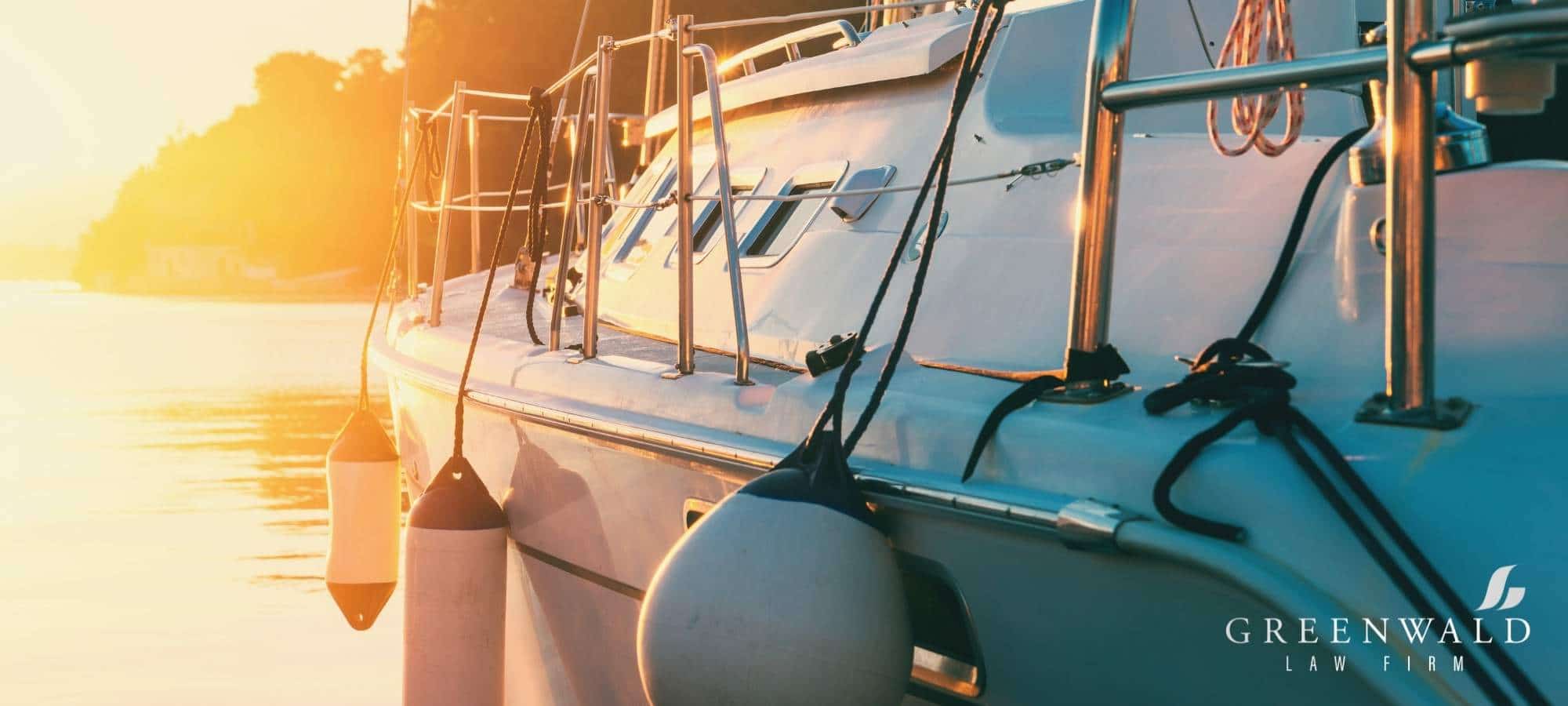
What is the Best Way to Avoid Overloading Your Boat?
There are some easy rules to acknowledge and follow that will help you better stay within your boat’s capacity and avoid a potential boating accident. If your boat does not have a capacity plate, you can use the following formula (measured in feet) for the passenger capacity. Note that this formula assumes that the average weight of passengers is approximately 150 pounds. Also, depending on the water conditions, it is advised to modify the divisor (the number wherein the boat area is split). You can split the area by 14 for calm water. Divide by 16 if you’ll be traveling swiftly or there’ll be a light breeze.
NUMBER OF PASSENGERS = BOAT LENGTH x BOAT WIDTH / 15
1. Stay Below Your Boat’s Max Weight Capacity
Always stay below your boat’s capacity plate limit for safety reasons. This might require some inventory management to ensure you stay within the safety range of what is acceptable for the boat to carry. The smaller the boat and lower the weight capacity, the more mindful you should be.
Here are some tips:
- What is important for the journey and what can you go without?
Do not sacrifice essential gear just to stay within your boat’s limits. You should always have a checklist in which you can note the weights of items and prioritize what is a must.
- Forgo ornate items or gear.
Unless you have a comfortable headroom of capacity, unnecessary or gaudy items and gear should be among the first to cross off of essentials. Do not get rid of the proper safety equipment that is vital, such as life vests.
- Plan ahead.
Even simply making this checklist of items taken and their weights is a form of planning that will be of help. If you have a lot of cargo you would like to take with you, this becomes an even more crucial step. Knowing and ensuring you have comfortable headroom for safety along your trip is vital. You should also stay up to date on the weather and, if possible, try to plan your trip around any potential bad weather. This will greatly impact your boat’s safety if your headroom is little to none.
2. Do Not Take Extra Passengers On Board.
Don’t bring any more passengers on board than your capacity and safety equipment allows for. Always keep in mind the limitations listed on your capacity plate. If there isn’t a capacity plate, examine the boat’s handbook for all the appropriate information. You can also use the boat capacity formula, but keep in mind that it isn’t always 100 percent accurate.
3. Distribute Weight Early.
To avoid lean, it’s critical to distribute weight uniformly. Leaning may put additional strain on the framework of your boat, trigger seasickness in your guests, and even send items or persons overboard. Boat manufacturers go to great lengths to ensure balancing and stabilizing a boat is as simple as possible. More importantly, they organize seats and cargo storage sections strategically. Even though you may heed the manufacturer’s guidelines, you’ll still have to fight lean, as it cannot be completely eradicated. The degree of lean in your boat will alter when weather changes and passengers/gear are removed or placed on board. To minimize lean, the greatest thing you can do is adjust your boat to the fluctuations and changing circumstances.
4. Avoid Transporting Heavy Loads In Bad Weather.
As previously stated, the capacity plate values relate to favorable or mild weather patterns. If the water is turbulent, you ought to keep your weight as low as possible. A large boat is harder to control and handle when the swells are strong, and hefty equipment shifting about can produce dramatic shifts in weight distribution. hence, the reason why it is critical to consider the weather while making plans.
5. Do Not Overpower Your Boat.
While motor power has nothing to do with weight or passenger capacity, we mention it because maximum horsepower is among the factors listed on boat capacity plates. There’s a rationale behind the horsepower restrictions. If you disregard them and put a more powerful motor on your boat than you’re supposed to, the following might happen:
- You could be fined.
- If you strain a boat that isn’t meant for high horsepower due to its limitations, it will become dangerous to handle.
- The weight of an overpowered motor is greater than what the boat’s design took into account when concerning capacity. As a result, an overpowered motor can cause your boat to sink at the stern, leading to an increased risk of flooding.
High-speed boats are exciting, but be careful to not overwhelm your vessel. If you wish to travel quickly, do yourself a courtesy and get a watercraft that is specifically constructed for that purpose.
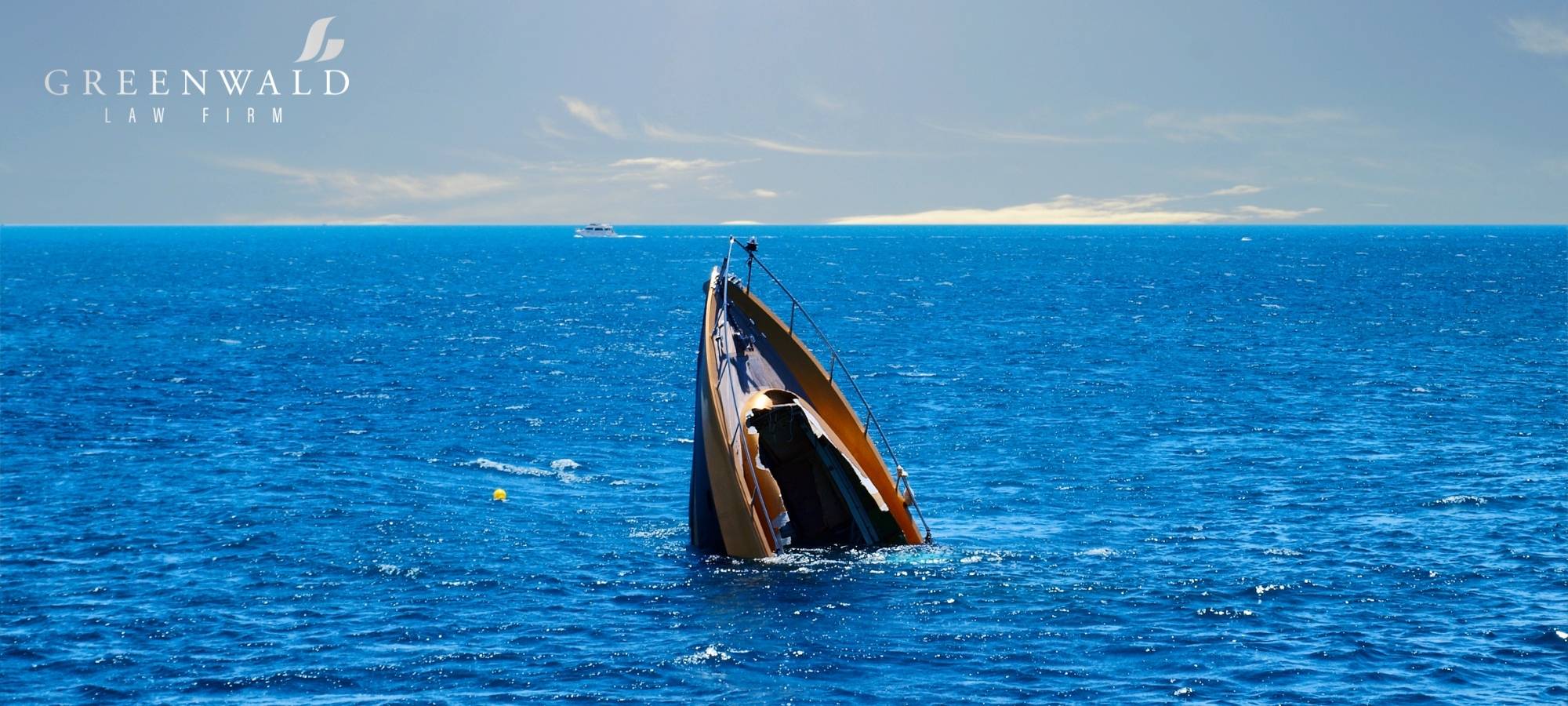
Boating Accident Injuries
Boating accidents can cause serious and sometimes even deadly injuries. The following are among the most prevalent boating accident injuries:
Traumatic Brain Injuries (TBI)
According to a report published by the United States Coast Guard (USCG) in 2011, brain injuries are the second greatest source of mortality in boating accidents. These ailments are most commonly triggered by oxygen deprivation after spending too much time underwater or by carbon monoxide exposure. A further important source of traumatic brain damage from watercraft accidents is the shock that happens when someone is flung into a boat wall or another watercraft following a crash. It can even occur from the powerful impact of being thrown into the water at high speeds.
Lacerations
Propellers are used to move boats forward. Propellers are sharp and revolve at a rapid speed, rendering them deadly to anybody who comes within proximity of them.
Burns
Electrical problems, explosions, and flames in the engine compartment can result in burn injuries among the people aboard. Passengers may suffer significant burns if the fire expands past the engine area or on a smaller boat.
Whiplash
Whiplash is a type of neck injury that happens whenever the head and body jerk forward rapidly and in such a way that the neck is strained. If the vessel comes to a sudden stop or turn, passengers may get whiplash. Typically, this is a minor muscular strain, although it can be devastating in some situations.
Injuries to the Spinal Cord
If two boats crash, spinal compressions (stress on the spinal cord) can occur, resulting in spinal cord injury. The impact waves on the vessel might cause spinal compressions, as well.
Drowning
A boat might capsize or passengers could be flung off the ship during a crash, requiring them to attempt to swim to safety. Even if a person can swim, they could still drown as a result of the incident’s bewilderment, weariness, riptides, or other traumas they might have incurred as a result of the accident.
Injuries to the Bones and Tendons
People could break bones and ligaments by colliding with walls or rails while falling or as a consequence of the force of an impact with another vessel or the water.
Amputations of Limbs
As already stated, a boat’s propellers are extremely sharp and function at incredible speeds. If someone were to fall near the blades by mistake or if the operator is unaware that there are individuals in the water, the injuries inflicted can end in the accidental amputation of limbs or worse.
Wrongful Death
All of the abovementioned injuries, among others, have the potential to lead to the death of a victim. In this case, Louisiana allows a surviving family member of the deceased victim to file wrongful death claims. Speak with our Shreveport wrongful death lawyer today to learn more about these types of claims.
Boat accidents can lead to catastrophic injuries, and may sometimes even prove fatal. Whenever these wounds are the product of someone else’s negligence, you have legal options. The first and most important thing you can do in this scenario is to seek the counsel of a boating accident lawyer. Contact a top Shreveport boating accident lawyer near you by calling Greenwald Law Firm, LLC, at 318-219-7867 or fill out our form online for a free legal consultation.
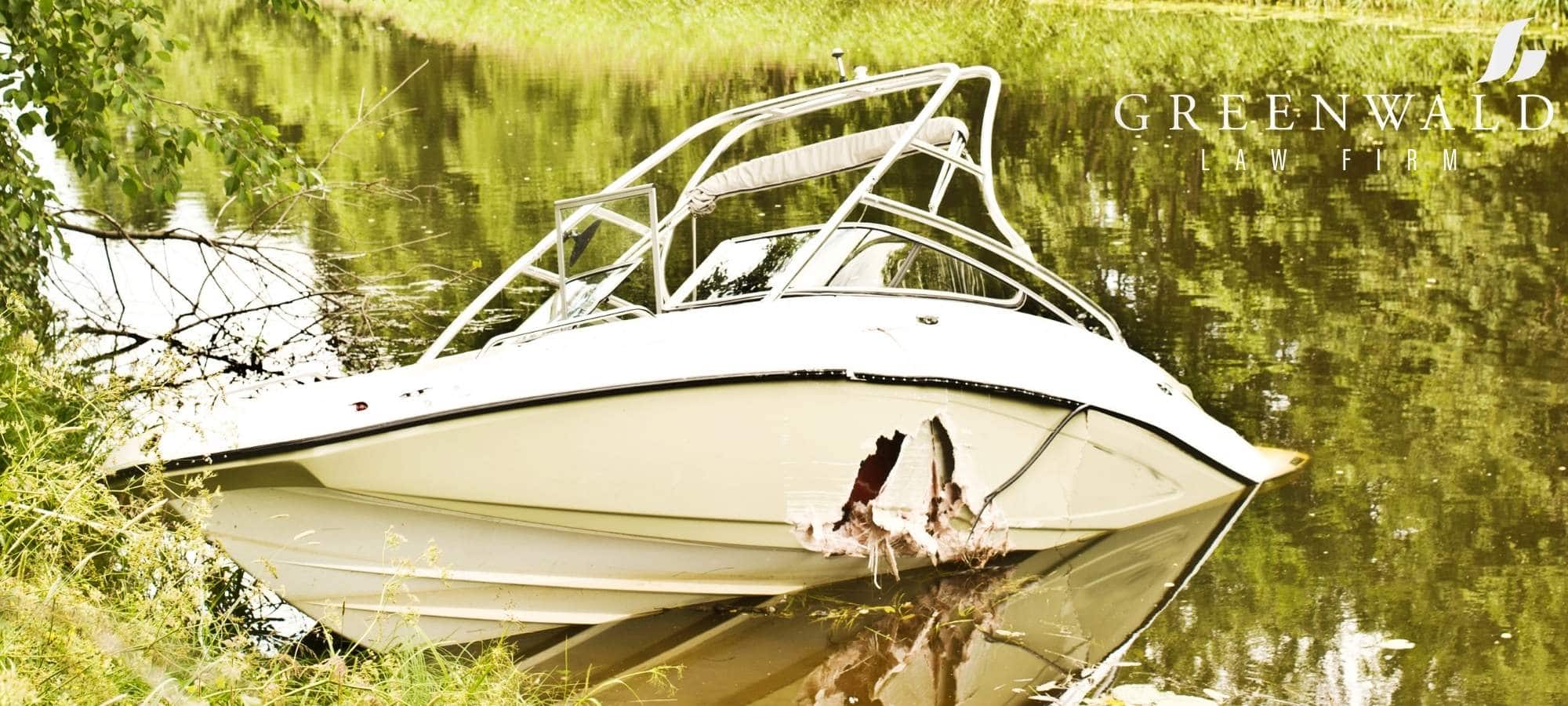
What Laws Apply to Boaters in Louisiana?
Any boat operator in Louisiana, according to Louisiana law, must be no younger than 16. If the operator had been born following January 1, 1984, they also should undergo an approved boater education program or be supervised by anyone over the age of 18 that has completed one. These boater ed classes aren’t held on the water; instead, they’re taught in a class or perhaps even digitally, and they cover critical safety topics.
Several boating rules are also enforced by the Louisiana Department of Wildlife and Fisheries. Numerous “rules of the road” for boats and other watercraft are outlined in these laws, including driving, passing, ceding the right-of-way, and more. Personal watercraft (PWC), such as jet skis, are subject to further regulations that restrict risky behaviors including weaving into traffic or wake-jumping. All watercraft operators have to be sober, avoid overloading or overwhelming the vessel, and prevent people from trying to ride on the gunwales or on decks lacking proper railings. The boat owner or other at-fault party can cause serious injuries such as brain and spinal damage, along with drowning or other forms of wrongful death, and will be held liable.
When a boat owner or other negligent party collides with another watercraft or injures a swimmer or water skier as a result of their carelessness or reckless behavior, they become the liable party. This means they are legally responsible for the injuries sustained in the boating accident case. They could also be held accountable to their own passengers if they operate the boat in a careless manner, causing passengers to fall into the water and become injured from the boats improper operation. Boat rental firms may also be found culpable if they have dangerous gear that hasn’t been regularly serviced, if they hire vessels that lack adequate emergency and safety equipment, or if they rent to minors or those who are inebriated and someone suffered injuries as a result.
Who is Liable in a Boating Accident Lawsuit?
If you or a loved one was injured in a boat accident, you may want to file a personal injury claim against the individual who caused the mishap. However, it might be challenging to definitively determine who is to blame for a boating disaster. The accident could have been caused by a number of different circumstances and by one or more of the following parties:
- The person operating the boat
- The operator of a different boat
- The boat’s owner
- A business enterprise such as a rental agency or a travel operator
- The manufacturer that made faulty boat components
The first component when trying to obtain damages for your injury is to figure out who caused your watercraft accident. Greenwald Law Firm LLC, in Shreveport, LA will carefully investigate your accident and determine who is responsible. To analyze and assess the accident, we may utilize a range of evidence, such as:
- Reports on the weather
- Boats and other structures have been damaged
- Medical records that are kept on file
- Eyewitness accounts
- Police reports
- Records of boat upkeep and maintenance
- Records from a boat rental firm
- Hiring methods and repair/servicing records of tour boat companies
Criminal charges may be pursued against the operator or some other party participating in the incident in certain circumstances. Criminal charges, on the other hand, are not required to file a civil claim in a personal injury lawsuit.
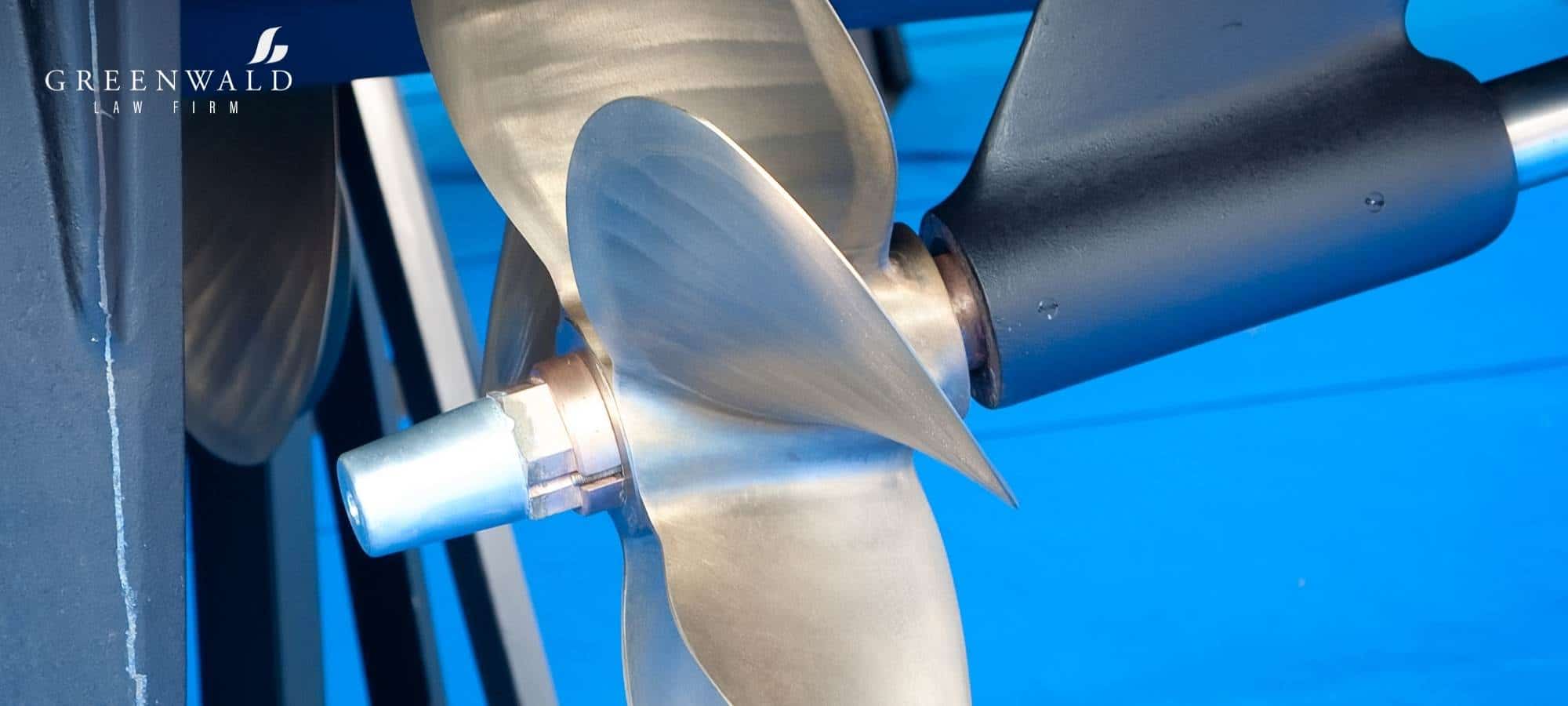
ingFiling a Lawsuit for a Boating Accident Has a Time Limit
Following a boating accident, CC Art. 3492 establishes a one-year statute of limitations for initiating a personal injury case. Failure to do so can result in the following consequences:
- Your lawsuit might be unable to be filed.
- Without a hearing, your claim is dismissed.
- A lawsuit may not be enough to persuade the culpable party to compensate you during settlement negotiations.
Hesitating and exceeding the limitations in your lawsuit might jeopardize your claim to financial compensation and other recoverable damages. When you consult an experienced boating accident lawyer from Greenwald Law Firm, you can count on us to submit your complaint promptly and within the statute of limitations. During your free consultation with one of our boating accident attorneys, we can discuss whether precise timelines apply in different practice areas, such as a boating accident lawsuit, a boating injuries personal injury case, a wrongful death action, or even just in filing your insurance claim.
What Damages Can I Recover from My Boating Accident?
All personal injury lawsuits, including boating accident claims, require the plaintiff (or their legal team) to establish culpability. Then, proof that demonstrates the owner or operator was negligent in creating the event and injuring the person is required. If you have this proof, you might be entitled to get recompense with an insurance claim or a civil court lawsuit.
An injured survivor may be eligible to file a suit to obtain damages, financial recovery, or other compensation for their injuries and/or property damage. The following are some examples of recoverable damages:
- To date, the expense of your therapy or treatment
- Medical needs in the future as a result of your injuries
- Wages, benefits, and other sources of income that have been lost
- Long-term injuries resulting in lower earnings
- Destruction of property
- Additional intangible losses, including pain and suffering
Our firm’s boating accident attorneys in Shreveport will examine your boating accident and advise you on how to make the culpable party or parties responsible. Our team of attorneys across multiple practice areas can assist you by supporting you during the legal process, from the filing of your claim or lawsuit to the presentation of your case in court.
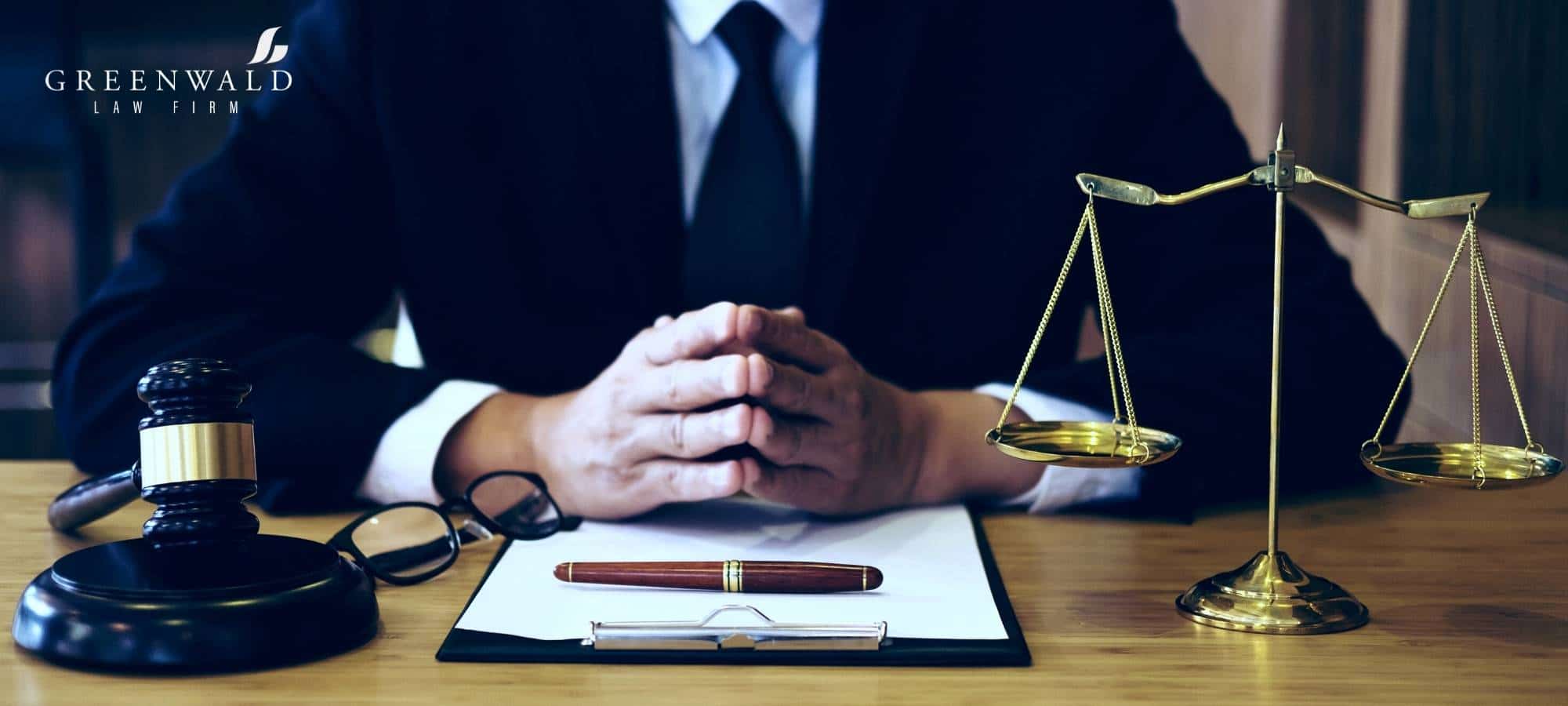
Why Do I Need a Shreveport Boating Accident Attorney?
Boating accident lawsuits are generally claimed on the premise of negligence. If the owner of the vessel fails to obey the stipulated boating regulations, inappropriately passes another watercraft, or fails to use/have sufficient safety equipment on board, the driver of the boat could be held legally responsible for their carelessness in the event a boating disaster. If the matter proceeds to court, a jury will decide whether the boat’s captain acted like a “reasonable boater” when operating the watercraft. The plaintiff’s damages should be closely attributed to the watercraft incident in order to get remedies. To establish a negligence claim, it is critical to gather proof such as eyewitness statements, police records, and pictures of the accident site and injuries. This is where an experienced Shreveport boating accident attorney comes in.
Boating accident lawyers like those at Greenwald Law Firm can help you distinguish the legal recourse that is available for boating injuries, wrongful death, and more. A boating accident lawyer understands what it takes to recover compensation for personal injuries and associated medical expenses, asses property damage, can properly deal with an insurance company, and collect evidence such as testimonies and medical records for your case. You not only want an experienced and knowledegable boating accident lawyer, but a dedicated and passionate lawyer, as well.
In addition, your lawyer can help you navigate the complex legislation that may apply to your case. For example, the legislation that applies to the wounded party’s case will be determined by the person’s status on the boat (if they were a worker, a visitor, an operator, or owner) and also the accident’s location. Incidents that occur near to the coast or in lakes and rivers are likely to be covered by Louisiana and federal laws, although accidents that occur further from the shoreline may be covered by maritime law. Your boating accident lawyer will know these laws and can help inform you of the specifics.
Boating Accident Lawyer Near Me
At Greenwald Law Firm in Shreveport, our experienced attorneys have plenty of experience with both personal injury and maritime claims, and they will utilize that knowledge to identify the laws, statutes, theories, and jurisdictions that apply to boating injury accidents. We have a firm grasp on such legislation and hold great value and emphasis on each attorney-client relationship we form.
We work hard to prove who could and should be held accountable for your damages based on the body of water, where the incident transpired, and the nature of the accident. If you intend to seek compensation for your injuries, it is critical to speak with a boating accident lawyer as quickly as possible. Call Joseph W. Greenwald, Jr. immediately at 318-219-7867 or complete our online form to schedule a free, no-obligation consultation today.